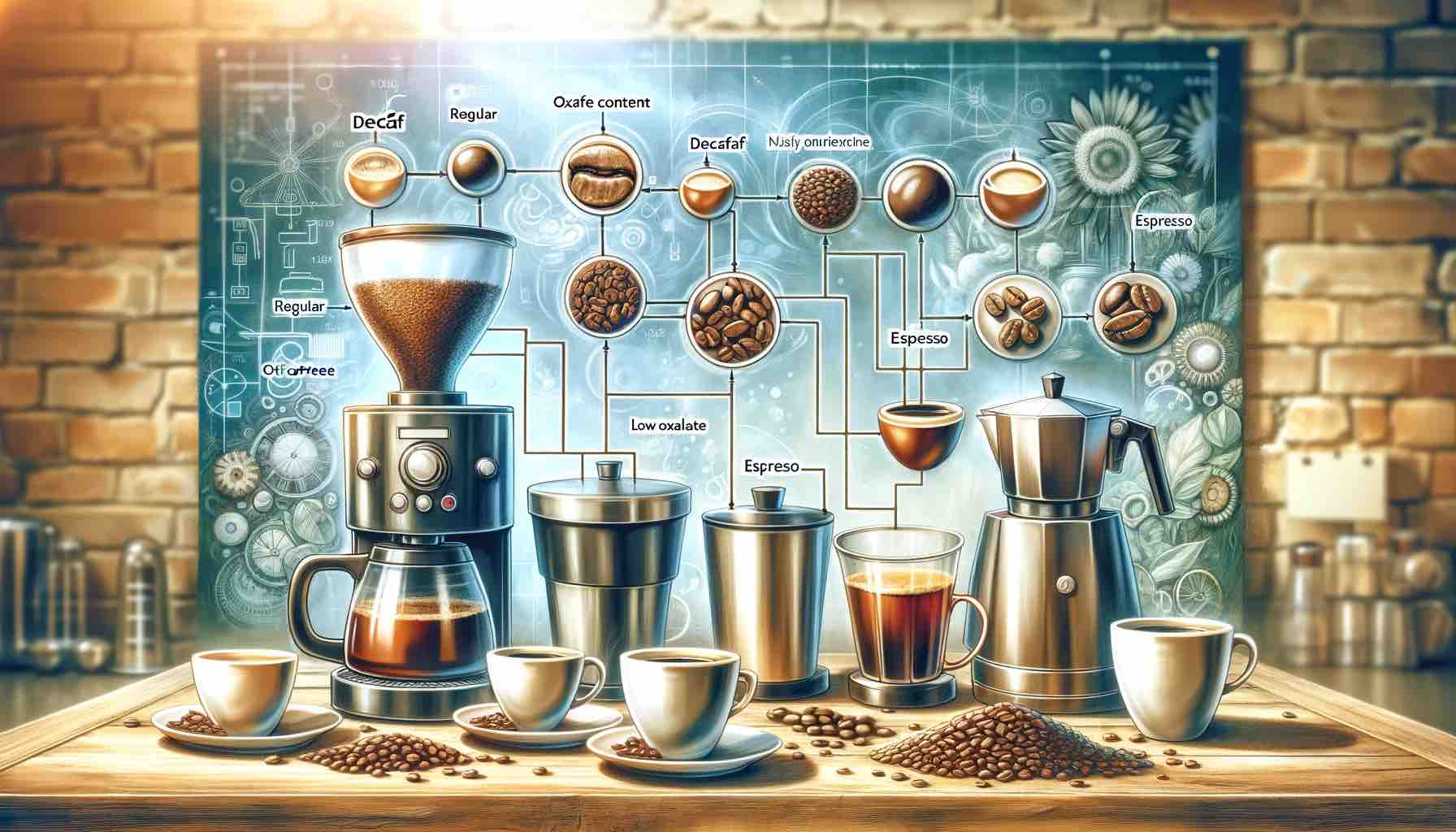
Introduction:
Are you a coffee aficionado who’s recently stumbled upon concerns about oxalates in your favorite morning brew? You’re not alone. Amidst the myriad of health discussions surrounding coffee, one burning question often pops up: Does coffee contain high levels of oxalates, and should this be a cause for concern? Let’s sift through the facts to find out.
Understanding Oxalates:
What are Oxalates?
Oxalates are natural compounds found in many foods. They play a varied role in human health, particularly regarding kidney health and the potential formation of kidney stones. When oxalates bind with calcium in the body, they can form crystals, potentially leading to kidney stones, a painful condition that might require medical intervention.
Health Implications of High Oxalate Intake
Consuming foods high in oxalates can be a health concern, especially for individuals prone to kidney stones or those with hyperoxaluria, a condition characterized by excessive urinary oxalate. Common high-oxalate foods include spinach, nuts, and chocolate, but what about coffee? The belief that coffee is a significant source of oxalates has been a topic of debate among health enthusiasts and medical professionals.
The Truth About Coffee and Oxalates:
Debunking the Myth
Contrary to popular belief, coffee is not a high-oxalate drink. In fact, most types of coffee, including instant, typically contain less than 3mg of oxalates per cup, making it a low-oxalate beverage.
Solid Scientific Backing
Recent studies and analyses have consistently shown that coffee’s oxalate content is minimal. This includes research indicating that both regular and instant coffee are low in oxalates. For those who are vigilant about their oxalate intake due to health concerns, this is reassuring news.
Coffee Types and Oxalate Levels:
Regular Coffee
Whether it’s your home-brewed cup or a grab-and-go from your favorite café, regular coffee is generally low in oxalates, ensuring that your daily ritual doesn’t pose a risk to your kidney health.
Decaffeinated Coffee
For those who prefer a caffeine-free experience, the good news is that decaf coffee also falls into the low-oxalate category, offering a safe alternative without compromising on oxalate intake.
Espress
Espresso lovers might wonder about their favorite concentrated brew. While espresso is made by forcing hot water through finely ground coffee beans, it’s only considered a moderate-oxalate drink. Each espresso shot contains around 5mg of oxalate, still a relatively low amount, but something to keep in mind if you consume it frequently.
Cold Brew Coffee
For those who enjoy their coffee cold, cold brew is another low-oxalate option. Made by steeping coffee grounds in cold water, it maintains a low oxalate level, similar to regular hot coffee, making it a safe choice for those monitoring oxalate intake.
Instant Coffee
Instant coffee, often a convenient choice, has been a topic of confusion. While some studies suggest it may have slightly higher levels of oxalates than regular brewed coffee, it still falls well within the low-oxalate range. Therefore, enjoying an instant coffee shouldn’t significantly impact your oxalate intake.
Practical Tips for Coffee Drinkers:
- Moderation Is Key: While coffee is low in oxalates, moderation is always a good practice. This is especially true for individuals with specific health conditions like a history of kidney stones.
- Consider Your Total Diet: Remember to consider your total oxalate intake from all sources, not just coffee. A balanced diet with a variety of foods can help manage oxalate levels.
- Stay Informed: Keep up-to-date with the latest research on coffee and health. As we continue to learn more, guidelines and recommendations may evolve.
Conclusion:
So, can you still relish your daily coffee without worrying about oxalates? Absolutely. Coffee, in its many forms, is generally low in oxalates and can be enjoyed as part of a healthy diet. Whether you’re sipping a latte, an espresso, or a comforting cup of home brew, you can do so with the knowledge that coffee is not a major contributor to oxalate intake.
Over to You!
Do you have any coffee rituals or preferences? How do you balance your love for coffee with health considerations? Share your thoughts and experiences in the comments below!









